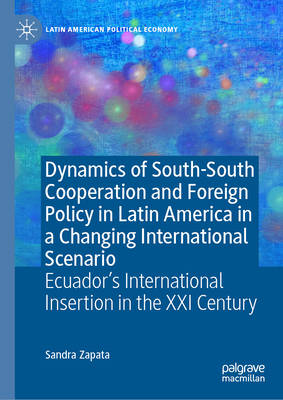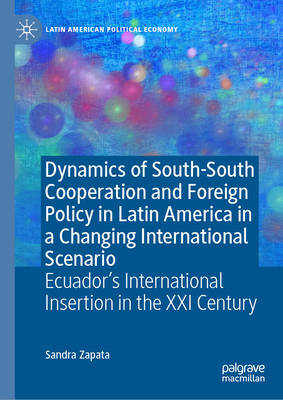
Je cadeautjes zeker op tijd in huis hebben voor de feestdagen? Kom langs in onze winkels en vind het perfecte geschenk!
- Afhalen na 1 uur in een winkel met voorraad
- Gratis thuislevering in België vanaf € 30
- Ruim aanbod met 7 miljoen producten
Je cadeautjes zeker op tijd in huis hebben voor de feestdagen? Kom langs in onze winkels en vind het perfecte geschenk!
- Afhalen na 1 uur in een winkel met voorraad
- Gratis thuislevering in België vanaf € 30
- Ruim aanbod met 7 miljoen producten
Zoeken
Dynamics of South-South Cooperation and Foreign Policy in Latin America in a Changing International Scenario
Ecuador's International Insertion in the XXI Century
Sandra Zapata
€ 138,95
+ 277 punten
Omschrijving
This book explores how South-South Cooperation (SSC) is influencing Latin America's foreign policy and development choices in a changing world shaped by China's growing global role. It looks at how countries in the region are rethinking their international strategies to gain more autonomy and reduce their dependence on traditional powers like the United States. By examining the history of SSC, the book shows how Latin American governments are turning to new partnerships and development paths. It explains how global and domestic factors combine to shape foreign policy decisions in the 21st century, especially as both China and the United States compete for influence. A detailed case study of Ecuador (2000-2025) highlights the counter-hegemonic diplomacy of Rafael Correa's presidency and the key changes that followed. This accessible and timely study offers valuable insight for anyone interested in Latin America, international cooperation, global power shifts, and the search for new models of development.
Specificaties
Betrokkenen
- Auteur(s):
- Uitgeverij:
Inhoud
- Aantal bladzijden:
- 274
- Taal:
- Engels
- Reeks:
Eigenschappen
- Productcode (EAN):
- 9783032022790
- Verschijningsdatum:
- 15/01/2026
- Uitvoering:
- Hardcover
- Formaat:
- Genaaid
- Afmetingen:
- 148 mm x 210 mm

Alleen bij Standaard Boekhandel
+ 277 punten op je klantenkaart van Standaard Boekhandel
Beoordelingen
We publiceren alleen reviews die voldoen aan de voorwaarden voor reviews. Bekijk onze voorwaarden voor reviews.









